#a fantasy of fixity
Explore tagged Tumblr posts
Text


4 notes
·
View notes
Text
Random Astro Notes
Sun in 5th house are attracted to people who shine or have a strong character. They don't go for looks or status. It's the person for them.
Taurus is a Fixed Sign denoting fixity of purpose, resolution, self-reliance and stubbornness.
Ketu-Neptune people such as Ketu in Pisces or Ketu conjunct Neptune or Ketu in 12th house people have a tendency to daydream and not be practical. They live in a fantasy world. Some people can be creative and artistic.
Moon in 10th house people may try to please their parents than pursuing their own ambitions.
Mars-Jupiter people are courageous, approaching life with gusto regardless of the consequences.
Venus-Saturn men often attract divorcees or widows.
Cancer Venuses often invite friends to family functions.
#astrology#astrology observations#zodiac#zodiac signs#astro community#vedic astrology#astro observations#astro notes#vedic astro notes#astrology community#venus transits#venus#venus in cancer
317 notes
·
View notes
Text
"We are unique emanations of the same shared Light."
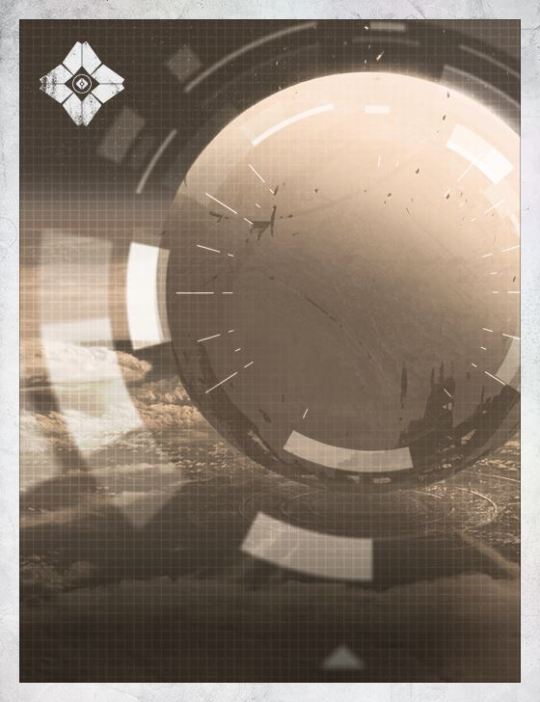
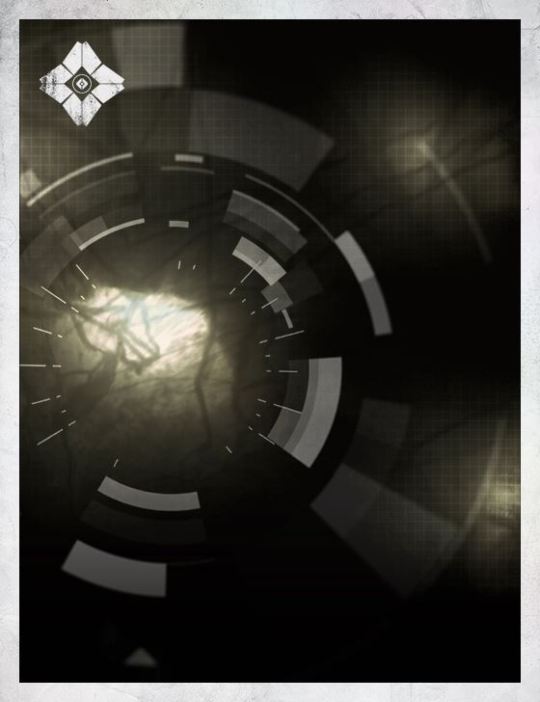
Collective unconscious refers to the unconscious mind and shared mental concepts. It is generally associated with idealism and was coined by Carl Jung. According to Jung, the human collective unconscious is populated by instincts, as well as by archetypes: ancient primal symbols such as
The Great Mother


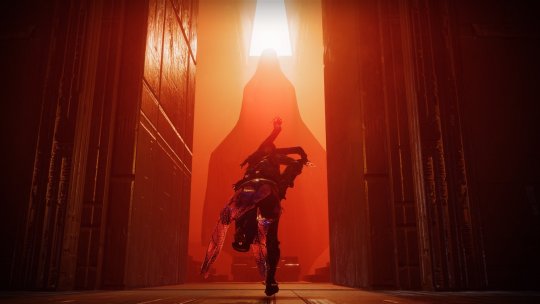

The Shadow

"Shadows were cast here. History made.”
“Am I to cast a Shadow?”
“Yes. You were bred to be a sorrow-bearer. I seek a Hive commander, but those are not so readily available. So I made you.”

"The shadows, showing the truth by their casting."

The Tower

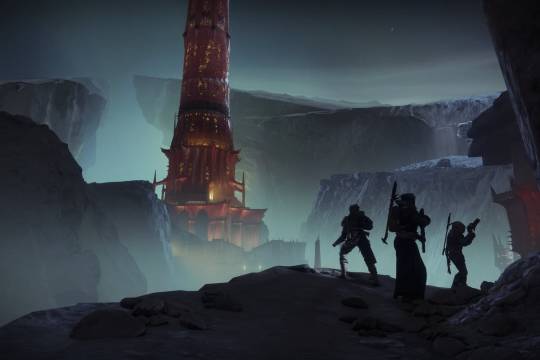
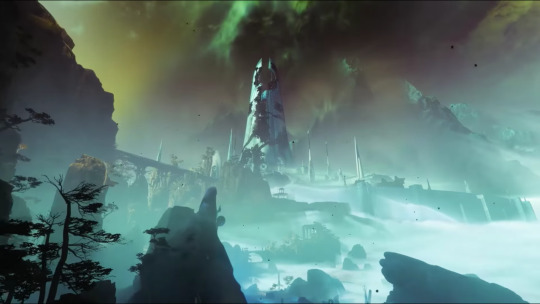

Water
"...wellsprings and rivers..."



The Tree of Life


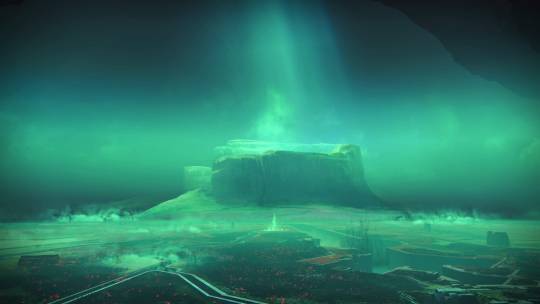

Jung considered the collective unconscious to underpin and surround the unconscious mind, distinguishing it from the personal unconscious of Freudian psychoanalysis. He believed that the concept of the collective unconscious helps to explain why similar themes occur in mythologies around the world.
O: [sighs] I do not fully understand what I saw, and for a Human to understand a Hive mind... How many legends of katabasis do we have, Ikora?
I: We currently have dozens of stories about descending to the realms of the dead, though research has indicated many more must have existed, lost in the layers of Human history we will never lay eyes on. Mathematically, there were likely hundreds.
I: [pauses] Inanna and Dumuzid and Geshtinanna, Orpheus and Eurydice, Izanagi and Izanami, to name a few. Gods and goddesses, mortal and immortal lovers, always seeking to descend and return with the lost.
O: And neither the lost nor those who searched for them were ever returned the same.
He argued that the collective unconscious had a profound influence on the lives of individuals, who lived out its symbols and clothed them in meaning through their experiences.




"They evidently live and function in the deeper layers of the unconscious, especially in that phylogenetic substratum which I have called the collective unconscious. This localization explains a good deal of their strangeness: they bring into our ephemeral consciousness an unknown psychic life belonging to a remote past. It is the mind of our unknown ancestors, their way of thinking and feeling, their way of experiencing life and the world, gods, and men. The existence of these archaic strata is presumably the source of man's belief in reincarnations and in memories of 'previous experiences'. Just as the human body is a museum, so to speak, of its phylogenetic history, so too is the psyche."
Ego | Shadow
Sacred Progenitor | Tyrannical Progenitor
Old Wise Man | Trickster
Animus | Anima
Meaning | Absurdity
Centrality | Diffusion
Order | Chaos
Opposition | Conjunction
Time | Eternity
Sacred | Profane
Transformation | Fixity
Light | Darkness
"And the essential thing, psychologically, is that in dreams, fantasies, and other exceptional states of mind the most far-fetched mythological motifs and symbols can appear autochthonously at any time, often, apparently, as the result of particular influences, traditions, and excitations working on the individual, but more often without any sign of them. These "primordial images" or "archetypes," as I have called them, belong to the basic stock of the unconscious psyche and cannot be explained as personal acquisitions. Together they make up that psychic stratum which has been called the collective unconscious. The existence of the collective unconscious means that individual consciousness is anything but a tabula rasa and is not immune to predetermining influences. On the contrary, it is in the highest degree influenced by inherited presuppositions, quite apart from the unavoidable influences exerted upon it by the environment. The collective unconscious comprises in itself the psychic life of our ancestors right back to the earliest beginnings. It is the matrix of all conscious psychic occurrences, and hence it exerts an influence that compromises the freedom of consciousness in the highest degree, since it is continually striving to lead all conscious processes back into the old paths."
Every weapon wielded and scrap of armor worn, every place visited, person met, symbol seen and pondered, every thought formed and lost and formed again... each one has a place in this story. Haven't you ever wondered what it all means? Where the path leads? Many have followed it before, countless numbers. And soon, it will be your turn. To walk. To see.
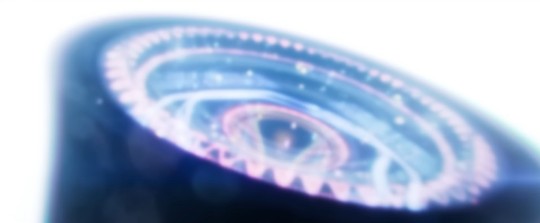
To understand.
A dream of a metaphor made starkly, an allegory discussed in study of ontology, in Darkness not unkind. It leaves behind a warped, barely-real data fragment to mark its passing. There is a voice that echoes across the Darkness, and it asks this question: what is the purpose of it all? And there is another voice that calls back and says: listen, I will tell you a purpose. I will tell you of a Final Shape. Look: there are a hundred gildings for this story. It comes down to one key matter. Beings in suffering crave purpose to carry them through. The tyrant consumed by ennui or the disenfranchised struggling simply to survive��it is the state of mind, the pain which cries out: give me a reason I should suffer so! Let us speak of power and choices. A man comes to a crossroads and asks of the sky, "Which road shall I take?" There is no answer from the sky, nor the wind, nor the earth beneath his feet. But another wanderer on the road, coming from behind and hearing the question, says, "I know the way. You should take the dexter road." If the man agrees, he puts himself in the wanderer's power, ceding his own choices for the implicit promise that this is the correct road, the safe road. And if he disagrees? Let us say that the wanderer draws a knife. The man may therefore be made to take the dexter road. But now if the knife goes away, the man will certainly flee. And perhaps even if the knife remains, the man may tire of being threatened and decide the risk is worth fleeing. In this way, the wanderer erodes their own power. If the wanderer says, "The wind has said that you should take the road of my choosing," will the man accept the choice made for him? And if the wanderer says, "Behold, I have seen that the meaning of suffering lies along the dexter road," will the man give away his own power for longer? Is it not easier to accept the guidance of a stranger when the path ahead is unknown?
youtube
And day dissolves into gold Night beckons and calls Night turns white with grief I can’t sleep
Whispers of the past Memories of yesteryears The things that did not last I recollect the tears
My love hold me tight There’s a haunted moon tonight Withered flowers never lie In midnight hours and numb goodbyes
Whispers of the past Memories of yesteryears The things they did not last I recollect the tears
Whispers of the past Memories of yesteryears The things they did not last I recollect the tears, the tears
#trace the vermicular path#the final shape#destiny 2#destiny#destiny the game#destiny lore#d2#destiny2#destinythegame#the veil#destiny the witness#Youtube
12 notes
·
View notes
Text
okay, now I'm gonna tell a story
I write original fiction. nothing's published yet, but I'd like for it to be in the future. a few years ago, I was living with family and working part-time in the worst of the pandemic. so, I decided, I could use this extra time to work on a book draft
I finished the draft, and naturally, I gave it to my mom to read. she had a lot of fun with it and encouraged me. but there was just this one thing that was bothering her
she noticed that the character with the least Anglophone name, who was also described as having dark skin, had something bad happen to them in the middle of the story. she recognized that it made sense to be that character; they were capable, and something happening to them made things more dangerous for the rest of the characters and raised the stakes, in addition to creating emotional drama. the character was rescued by the end of the story. it all ended well
but my mom couldn't shake that feeling.
at first, I was so frustrated. not at my mom, of course. I knew what she said was true, and I respected her feedback. I just wasn't sure what to do to fix it. and I still haven't fixed it to this day
I felt like I, whose life has been shaped by racism in a great number of ways, ought to know better. every time I looked back at my draft, all I could see was this one glaring issue in a text where I had tried to be so careful. I felt like I had failed
I tried to shake off the self-pity, mostly because I didn't find it very productive. the book still needs work, mostly because I made some pretty major changes to the world. but when I go back to it? I gotta fix that thing my mom pointed out
it was a moment of the unconscious slipping into my fantasy world. a large part of what's so special about fantasy to me is it gives us a chance to imagine our world might be different. it reminds us that history is contingent; that any structure that's been built up, no matter how old, can be taken down; that the future isn't foreclosed; that we can love and relate to characters whose circumstances are so different than ours but feel so much the same
I have a chance to challenge my unconscious. when I made the post about Ekko being coded as a black man (and, importantly, the only member of the main cast who is) who gets shot by the police and why it didn't quite sit right with me, I believe I was looking at someone else's unconscious
it's this one thing in a text that tries very deliberately to be careful about race, one place where it feels like it didn't quite connect. that's why it stands out. the show's handling of race, as I've said elsewhere, can help us realize how contingent (read: fake) race is. and taking away its fixity gives people the power to change it
so for Ekko to be put in a situation it feels like black men can't escape breaks that feeling. it means we have more to do and think about, just like I did a few years back. we'll survive it
13 notes
·
View notes
Text
Conventionally, escape, when used of "escape literature," implies a general evasion of responsibilities on the part of the reader who should, after all, spend his time on "serious literature." This is a pernicious dichotomy that derives from two misconceptions: first, that "seriousness" is better than "escape"; second, that escape is an indiscriminate rejection of order. Both these misconceptions owe something to the Protestant work ethic.
Escape literature includes adventure stories, detective stories, tales of fantasy, pornography, westerns, science fiction, and, when read for pleasure by adults, fairy tales.
Escape literature, according to the conventional wisdom, "aims at no higher purpose than amusement." But in the notions of "higher purpose" and of adults reading in a genre "beneath" them, we see that even today we maintain vestiges of the old prescriptive criticism: some kinds of literature are inherently better than other kinds. However, whatever virtues this position may have, it does not help us address questions of the uses of the fantastic.
The escape offered by these popular genres comes from their ability to exchange the confining ground rules of the extra-textual world not for chaos but for a diametrically opposed set of ground rules that define fantastic worlds. In so doing, authors create for us such works as The Odyssey, Oedipus, and Metamorphoses, to name just one each of "adventure stories, detective stories, tales of fantasy." These are not "beneath" anyone, and their escape is just as potent, and derives from precisely the same reconfiguration of ground rules, as To Hell and Back, And Then There Were None, and Pinocchio, respectively. The theme of a work may seem trivial, its characters uninteresting, its conflicts irrelevant, but if it offers escape, it is in that regard structurally akin to some of the world's great literature.
Escape in literature is a fantastic reversal, and therefore not a surrender to chaos. In its mundane uses, escape may be defined as "emerge from restraint; break loose from confinement." In the United States, the only country that calls its prisons penitentiaries, escape surely must imply a delinquent evasion of responsibilities. Since prison is an inherently displeasing environment with onerous ground rules, escape comes to mean any change, escape to anywhere. But escape from the prison of the mind is not so easily had. If the restraint is grounded in one's perceptions of oneself or of the nature of the world, mere change is not enough: one needs a compensating change, a diametric reversal. If boredom is the sign of the mind's one-track fixity, then its opposite, excitement, is what we need. Alice descends into Wonderland, not into Morris' Nowhere or Voltaire's garden. Escape, then, is neither inherently frivolous nor inherently unrestrained; we need feel no guilt in reading escape literature. In the literature of the fantastic, escape is the means of exploration of an unknown land, a land which is the underside of the mind of man.
—Eric S. Rabkin, The Fantastic in Literature, 1976
36 notes
·
View notes
Text
Astrology as Brain Candy
One of the wonderful things about being a fiction writer is that you don’t have to worry about being right. Telling lies is the name of the game, so you have a license to follow interesting people down the most bizarre rabbit holes imaginable. All that matters is that their mistakes are interesting enough to weave a story around.
I came to astrology as an adult with little exposure to the discipline beyond newspaper horoscopes. There were whispers in my high school science classes about astrology. I knew that some famous astronomers in the past were also astrologers–Kepler, Regiomontanus, Tycho Brahe–but my teachers were baffled by their interest, and they taught me to raise an eyebrow, as well. At best, I was led to believe that their interest in astrology was an eccentric affectation. At worst, there were whispers about madness and genius, the inseparable twins.
When I was in my late-20s, I became fascinated by astronomy’s embarrassing estranged twin. Clutching my license to follow absurd ideas to their illogical conclusions, I threw myself down the astrological rabbit hole in search of a story.
I had always been told that astrology was fundamentally based on fantasy. Night sky as Rorschach test: Humanity looked at the stars and told stories about the shapes we found there. This story is true, but it isn’t the whole story. Encoded in the strange occult symbols are philosophical arguments dating back to the Presocratic Greeks. What is the fundamental nature of reality? How does existence come into being? What was the primordial substance air, fire, or water? In what positions were the planets at the first moment of creation? What is the nature of the lifecycle? Is it possible for matter to die?
Astrology doesn’t provide answers to those questions. It inhabits the questions themselves. In astrology, the universe is a clock. Viewed outside of time, the hands point to every possible number. The only answer to, “What time is it?” is, “Yes. As the planets cycle through the zodiac, they adopt different sides of every argument. Observe through enough cycles, and you’ll see what reality is like when each of the possible answers to these questions is true. Meet enough people, and you will meet each of these answers embodied as a living soul.
A chart is not a single answer but many. Every chart is a map of the universe in dialogue with itself. Within the thought-experiment of the chart, the answers talk with each other, argue with each other. The sun thinks the fundamental nature of reality is fire. The moon thinks it's water. Together, they make steam, and from the steam, Neptune is born.
Taken all at once, the system of astrology is tremendously complicated, but it is the complexity of fractals, an endlessly complicated system built on simple rules. Just like complicated molecules can be broken down into simple elements, a chart can be broken down into planets, signs, houses, and the relationships between them. Signs can be broken down into elements, modes, polarities, and the relationships between them. Polarity is binary. Ones and zeroes.
There are people who could happily spend eternity contemplating elegant abstraction. You may be one of them. I’m not a mathematician, scientist, or technical person. I am a poet. When I explore the abstract complexity of astrology’s roots, I’m a diver, wearing specialized equipment, living on bottled air. I dive for the same reason pearl divers dive. I am looking for treasure in the depths. Imagery and metaphor.
Astrology is the difference engine of poetry: Like an organ grinder monkey, you can make music by turning a crank.
An example: Astrology says that Scorpio is the sign of “fixed water.” What, exactly, does that mean?
Fixity is one of the three modalities. Modalities map the lifecycle. Fixed signs are right in the middle between cardinal and mutable. They live like Vitruvian Man, arms stretched equally on both sides between infancy and old age.
Water is an element we are intimately familiar with. We need water, or else we��re dead. It nourishes us and cleanses us. It is the source and substance of life. Your brain is 95% water.
What does it mean to bring these two simple ideas together? In nature, what does fixed water look like?
When I was a young astrologer, I thought the answer to this answer was easy: ice. “Ice” came to me easily because it is unmoving and represents the stubborn unmovingness of middle age. (My sun sign Taurus embodies this quality most of all the fixed signs, so it’s not difficult to see why I chose this quality to emphasize.) Ice can be powerful. I was born on glacier-scoured land. The gently rolling hills are the bones of mountains that were once taller than the Himalayas. The ruins of a mountain range conquered by ice, the land of New England is a testament to just how powerful ice can be. Ice becomes powerful with time and movement, but these qualities are not essential (or even common) to its nature. With encouragement and pressure, ice can do extraordinary things. Without it, ice doesn’t do much at all.
The closer I’ve gotten to the midpoint of middle age myself, the more I’ve come to realize (or hope or wish) there is more to middle age than stubbornness. Middle age should be at the top of a big bell curve between beginning and ending. Under ideal circumstances, life at middle age reigns at the height of its power. It knows who it is, what it is capable of, what its domain is. It knows its limits, as well, and, within those limits, it doesn’t hesitate to act.
In nature, rivers embody fixed water most clearly. Rivers have the powerful earth-carving power of glaciers, but they are water at its most alive, most itself. Water that is unmoving–either because it is frozen or because it is stuck and has nowhere to go–is dead water. Middle age can be like a barren icefield or a swamp, but that is what happens when middle age has gone wrong. A living death at middle age isn’t the way things should be.
Springs, rivers, and oceans are living waters. This is the water of astrology, beginning, living, and returning to the source.
I speak with the confidence of a middle aged astrologer, but the answer to the question, “What is fixed water?” is far from settled. Like rivers, symbols are living, moving things. Attempting to settle a final answer on them is as foolish as building a city on a flood plain. Even within a single person, the answers change. Ten years ago, I ran the question of Scorpio through my natal chart and churned out ice. Today, I returned to the same place and found a river.
I would never claim to have a mind like Kepler’s, but it is no longer a mystery to me why geniuses of his calibur have been fascinated by astrology. It isn’t the answers that astrology can potentially give about the future that makes it so fascinating, it’s the questions it raises, the potential foci for rumination.
Like a child peering into a kaleidoscope, the mind is transfixed, staring into the starry heavens, enchanted.
4 notes
·
View notes
Text
"Negativity for us refers to the psychic and social incoherences and divisions, conscious and unconscious alike, that trouble any totality or fixity of identity. It denotes... the relentless force that unsettles the fantasy of sovereignty. But it effects, in our view, are not just negative, since negativity unleashes the energy that allows for the possibility of change." - Lauren Berlant and Lee Edelman, Sex, or the Unbearable
1 note
·
View note
Text
hi. reading the introduction to the cambridge companion to the body in literature atm and:
‘For the body is never simply a passive depository of cultural fantasy or the workings of power; it resists all reification and fixity.’
‘Corporeality animates the theatre while at the same time seeming to undo itself.’
‘In the end, it is above all our perplexities regarding enfleshment and its meanings that we share with earlier times.’
inconsolable
8 notes
·
View notes
Text
PARASITE: My analysis (spoilers)
There’s so much to unpack in Parasite I don’t know where to start from. I have to say this was a magnificent thriller with that hint of horror that in my opinion really added to this film (and only Asian directors can so skillfully slide in without trashing the story by doing so). I don’t think I’ve ever been hanging on my seat as long as I did with Parasite. There are three narrative layers, one for each family: the Park’s, the Kim family and finally housemaid Moongwang and her husband. There is most certainly a descending social hierarchy between these people, explicitly portrayed by the location of their respective houses: while the Park’s live in a luxurious mansion flooded by light, the Kim’s share a semi basement enlighten by a narrow window at the street levels that not so occasionally becomes a toilet to drunk passersby and finally the housemaid hiding away her husband from loansharks in the underground bunker of Park’s house, where there is no light, no fresh air. I won’t recap the story since I assume you’ve watched it already, but I will focus on the dynamics among these groups of people instead and the symbolism this film is so rich of. I’ve found this movie incredibly dynamic as the director for two hours keeps taking us up and down a flight of stairs: we follow Mrs Park up to her kids rooms, and then we’re going down again to the living room; the housemaid takes us to the basement and then up again. As the movie gets to its core we go even lower through the asphyxiating corridors of the bunker and then out and away from its moldy walls. Beyond the blatant metaphor of stairs standing for a social ladder these people climb on and fall from, it was such a great device to create dynamism and tension in the story, which is set almost entirely in that single house. If we were to consider Parasite a play, then the Park’s house would be the stage, with the peculiarity of their owners being completely unaware of what unfolds around them and beneath their feet. They live in a blissful state and differently from anyone else around them, their concerns are minor. In a couple of scenes we find Mrs Park asleep and because of this condition, this sort of narcoleptic state, she becomes the emblem of the class she belongs to: around her is poverty, hunger, deception and violence, yet she is blind to it all and the moment it is all revealed before her eyes at the birthday party, she cannot stand the horror of the reality she ignored and she collapses unconscious. This is the undying reality of this world: so much misery is consuming this society yet those in a position of power and privilege more or less consciously ignore the existence of it.

So the real action takes place away from the Park’s eyes and even though this movie is a rollercoaster, the real climax is reached upon the discovery of the bunker. The Kim family is drinking together, watching the rain fall down as they daydream about their future: a moment of genuine happiness that is disrupted shortly after upon the arrival of the previous housemaid. To me this was the highest point of the movie and truly unexpected. The story moves into a different dimension and if up to that moment we have watched the poor slowly creep into the rich house through lies and deception, as we are visually taken underground to the bunker we switch from the parasite/host narrative to the parasite/parasite battle. It’s the beginning of a bloody conflict, the Kim’s on one hand, the maid and her husband on the other, fighting for the place of a slave.

There is a significative piece of dialogue that takes place between Moongwang (the maid) and Choongsok (Mrs Kim), right before the rest of Kim’s family accidentally reveal themselves, so making it clear to Moongwang what happened up to that moment: Moongwang asks Choongsok help, calling her “a sister in need” as she begs her to keep the secret and bring food to her husband, but Choongsok immediately refuses to identify with her, dismissing the title of sister in need and threatening to call the police as she stands in a position of power over Moongwang and her husband, even if only for so long. In that moment we can see how Mrs Kim is not willing to abandon what she considers her position of privilege in order to sympathize with the couple who shares with her more than she would like to admit. She shows no understanding for who happens to be lower than her (even if just by little): her only concern is to protect what she unrightfully gained. And in the lack of solidarity of fraternity we see the rich/poor juxtaposition being reproduced among the lowest classes. It only takes a bit of power for the one who holds it to abuse it on those below. It’s the survival of the fittest that knows no mercy.
The reason why I really enjoyed Parasite is the complexity or it, it is intense and holds a lot of meaning. It doesn’t simply come down to anti capitalism, because if it’s true that it shows us humans turning savages in their desperate quest for money and comfort, engaged in a constant conflict induced by a hierarchical structured society, it also portrays the fixity of that structure. Aspiring to reach the top of that pyramid, believing to fit among those staying at the top, is mere fantasy. And when Mr. Kim and his son Kiwoo realize that for themselves there’s no turning back to the tragedy. Starting from Mr Kim, it’s because of a smell, his smell, the smell of the corpse, that finally he stabs Mr. Park. For the ceo that smell crosses the line as it is the only thing giving away Kim Kitaek’s background. The Park believe him (just like everyone else in the family) to be an experienced driver, a professional in high demand, yet the only thing that brings them closer to the reality of that semi basement he lives in is too much for them and causes a great nuisance. Because that smell isn’t the sign of a poor hygiene but the symbol of his social status. And that status, the reality he comes from, will be stuck with him forever even if he was to sit on the highest throne of the world. If Kitaek strives to better his condition, right when he believes to have elevated himself, his smell clings onto him reminding him where is it that he really belongs to. It is impossible for him to become different.

Moving over to Kiwoo, by the end we see him in Dahye’s room, standing absorbed in thought by the window and asking her “Do I really fit here?” and few minutes after he is collecting the rock from his backpack and going downstairs most certainly go get rid of the maid and her husband, the only obstacle to his family ascending. But tragicomically enough, his chosen weapon ends up crushing his own head. I would say that stone is among the main actors of this movie. When he receives it from Min together with the tutoring opportunity, it becomes for him a sort of prophecy, awakening in him an ambition, a sense of hope. Perhaps the hope to climb the mountain that rock comes from. In the end he actually goes on top of that mountain, finally leaving the rock in the river, maybe hinting at the fact than rather than wealth it brought him misfortune. But until that moment that rock sticks with him all the time, just like his helpless sense of hope: at their lowest, on the night of the flood, he sleeps holding it over his chest. But ultimately that hope deceives him and his family more cruelly than they deceived anyone before.
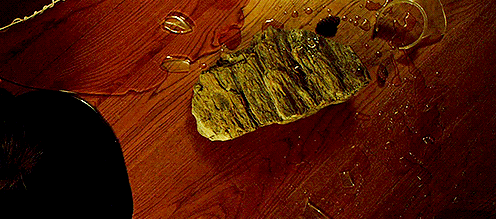
There is no happy handing for them: his sister dies, his father disappears, it’s just him and his mother left exactly where everything began. The same house, a new host and Kitaek being the new parasite, the story repeats itself unchanged. Now it’s at the ending that the director becomes the most cruel. We’re made believe that despite everything Kiwoo could really save his family from the despair they lived their whole life, I believed it, you believed it, everyone believed it, only for our imagination to be crushed on the sight of Kiwoo in the semi basement, daydreaming about a better future when he will free his father. Personally I take it as an open ending: what condemned the Kim family to their tragic ending was probably the lack of morality they acted with. I want to believe that Kiwoo will get a second chance in life, hopeful that he will use this opportunity righteously. Being honest, just like being nice, is easy when you’re rich, but it takes courage when there’s no reason or reward for it.
117 notes
·
View notes
Text
i was rereading old speranza fics over the weekend and i didn't read it but she has a brideshead revisited fic called "Sebastian Revisited" and i can't stop thinking about that title. it reminds me of something i love, texts that feature one narrator recounting another character so far after the end of the plot/the scope of their knowing each other, where implicitly it's the fact of this other's existence that the entire text has been undertaken to try to explain, and how it gives the impression that certain characters can only be understood in retrospect (difficult friend temporality). i think it's mainly the idea that to know this person or describe them would take an entire lifetime and almost can't be done while they are still before you, it has to come after loss or after time, and then even so you still end up failing to do it. like the harold chapters in a little life, i love the whole conceit of them and them being in a different tense, that they're ostensibly direct address but the "occasion" for him speaking ends up being so thin, talking to willem's portrait but the real occasion is that the event of knowing (having known) jude has to be explained somehow, after the fact (because back then he didn't know so much of this) and endlessly. i love that it's harold's life story, but its actual sole focus is to approach someone else. like framing harold's life as unfolding in the direction of bearing witness to this one magnificent miraculous person who even at the end of all this speaking still evades him
#the harold chapters (jude revisited)#i think it's that the participle originally refers to a place#places are revisit-able. and that the fantasy of this kind of recounting when it comes to a person is of fixity#the idea that not understanding him when he was present (was there) to be understood can be rectified by understanding him retroactively#by pinning him down in words#but can you revisit a person#it's never too late to come back to my side#but we always did try#i wish i grew up the second i first held you in my arms#you don't know my attributes
7 notes
·
View notes
Text
Dan Colen at Gagosian Park & 75, New York
February 12, 2020
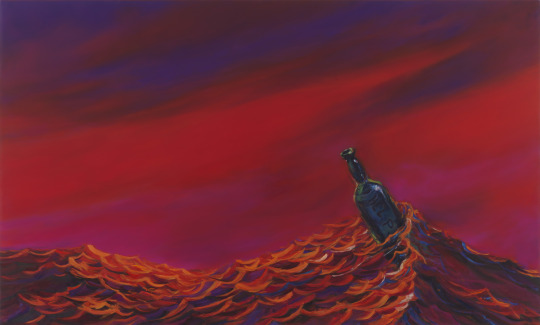
DAN COLEN HELP Opening reception: Wednesday, February 26, 6–8pm February 26–April 4, 2020 Park & 75, 821 Park Avenue, New York __________ I’m interested in the fragility of the moment. When painting, each brushstroke is an opportunity to consider and preserve that moment. Each mark is a decision, from the moment the brush collides with the canvas, and each one can go in so many different directions. —Dan Colen Gagosian is pleased to present HELP, an exhibition of new paintings by Dan Colen. Moving between diverse styles and subjects, Colen investigates the conceptual stakes of materiality and mark making. In his earliest paintings, elements of the supernatural intrude into naturalistic renderings of interior spaces, while his more recent canvases explore the technical, physical, and thematic limits of the medium itself. Colen has often worked with unconventional materials such as chewing gum, soil, and trash, relinquishing control of his work’s final appearance to their unpredictable surfaces. Nevertheless, representational imagery has remained a through line across his oeuvre, allowing him to conduct an ever-evolving inquiry into the objecthood and authority of painting as a medium.
In his new canvases on display in HELP, Colen uses the motif of the message in a bottle—bobbing on an open sea or washed up on a distant shore—to stage the practice of painting as an act of faith, and as a tool for communication with the unknown. The note enclosed in the sealed glass container has traditionally functioned as a distress signal or last-ditch message from a desperate or doomed sailor. These works represent the final entries in Colen’s cycle of “Disney paintings,” which derive their imagery from animated films made by the famous studio.
Beginning in 2003 with his Candle paintings, Colen has used Disney’s imagery and aesthetic to suggest the presence of the fantastical and the miraculous. Based on imagery from Pinocchio (1940), these works depict the woodcarver Geppetto’s table. But in a humorous subversion of Disney’s wholesome ethic, the smoke drifting up from a just-extinguished candle spells out a succession of obscenities. The later Miracle series (2010–18) uses imagery from Fantasia (1940), while the Mother paintings (2008–19), draw on Lady and the Tramp (1955).
In HELP, Colen looks to the fantasy drama The Rescuers (1977). Here he renders ocean and horizon in bright primary colors, retaining the hard graphic outlines characteristic of the cartoon form while still infusing the paintings’ ripples and waves with a sense of movement. In places, his expressive brushstrokes evoke the softness and freedom of watercolor as much as the relative fixity of oils. Among Colen’s most atmospheric works to date, these haunting compositions evoke oceanic loneliness, purposefully drawing upon familiar imagery to suggest a confrontation or conversation with the sublime. _____ Dan Colen, HELP, 2019–20, oil on canvas, 28 × 46 ½ inches (71.1 × 118.1 cm) © Dan Colen. Photo: Rob McKeever
5 notes
·
View notes
Text
Intellectus sacrificium intellectus . 1 – The assumption that thought profits from the decay of the emotions, or even that it remains unaffected, is itself an expression of the process of stupefaction. The social division of labour recoils on man, however much it may expedite the task exacted from him. The faculties, having developed through interaction, atrophy once they are severed from each other. Nietzsche’s aphorism, that ‘the degree and kind of a man’s sexuality extends to the highest pinnacle of his spirit’, has a more than merely psychological application. Because even its remotest objectifications are nourished by impulses, thought destroys in the latter the condition of its own existence. Is not memory inseparable from love, which seeks to preserve what yet must pass away? Is not each stirring of fantasy engendered by desire which, in displacing the elements of what exists, transcends it without betrayal? Is not indeed the simplest perception shaped by fear of the thing perceived, or desire for it? It is true that the objective meaning of knowledge has, with the objectification of the world, become progressively detached from the underlying impulses; it is equally true that knowledge breaks down where its effort of objectification remains under the sway of desire. But if the impulses are not at once preserved and surpassed in the thought which has escaped their sway, then there will be no knowledge at all, and the thought that murders the wish that fathered it will be overtaken by the revenge of stupidity. Memory is tabooed as unpredictable, unreliable, irrational. The resulting intellectual asthma, which culminates in the dissolution of the historical dimension of consciousness, leads directly to a depreciation of the synthetic apperception which, according to Kant, cannot be divorced from ‘reproduction in imagination’, from recollection. Fantasy alone, today consigned to the realm of the unconscious and proscribed from knowledge as a childish, injudicious rudiment, can establish that relation between objects which is the irrevocable source of all judgement: should fantasy be driven out, judgement too, the real act of knowledge, is exorcised. But the castration of perception by a court of control that denies it any anticipatory desire, forces it thereby into a pattern of helplessly reiterating what is already known. When nothing more may actually be seen, the intellect is sacrificed. Just as, under the primacy of the autonomous production process, the purpose of reason dwindles away until it sinks into the fetishism of itself and of external power, so reason itself is reduced to an instrument and assimilated to its functionaries, whose power of thought serves only the purpose of preventing thought. Once the last trace of emotion has been eradicated, nothing remains of thought but absolute tautology. The utterly pure reason of those who have divested themselves entirely of the ability ‘to conceive of an object even in its absence’, converges with pure unconsciousness, with feeble-mindedness in the most literal sense, for measured against the extravagantly realistic ideal of a datum freed of any categories, all knowledge is false, and true only where the question of truth or falsity cannot be applied. That such tendencies are far advanced can be seen at every turn in the activities of science, which is on the point of bringing the last remnants of the world, defenceless ruins, under its yoke.
...Great and small . – One of the disastrous transferences from the field of economic planning to that of theory, which is no longer really distinguished from the ground-plan of the whole, is the belief that intellectual work can be administered according to the criterion whether an occupation is necessary and reasonable. Priorities of urgency are established. But to deprive thought of the moment of spontaneity is to annul precisely its necessity. It is reduced to replaceable, exchangeable dispositions. As in war economies orders of precedence are decided for the distribution of raw materials, for the production of this or that type of weapon, a hierarchy of importance is creeping into theory-formation which gives preference to either particularly topical or particularly relevant themes, and discriminates against, or indulgently tolerates, anything non-essential, letting it pass as ornamentation of the basic facts, finesse. The concept of relevance is determined by organizational considerations, that of topicality measured by the most powerful objective tendency of the moment. This schematization into important and subsidiary categories follows the scale of values of prevalent practice with regard to form, even if contradicting it in content. In the origins of progressive philosophy, in Bacon and Descartes, the cult of the important is already contained. Yet in the end this cult shows an unfree, regressive quality. Importance is represented by the dog out on a walk: at some unexplained spot he stands and sniffs, tense, unyielding, earnestly displeased – and then relieves himself, scrapes the ground with his feet and trots on his way in unconcern. In primitive times life and death may have depended on such things; after thousands of years of domestication they have become an unreal ritual. Who can help being reminded of them when observing a serious committee weighing the urgency of problems before turning over the carefully defined and timetabled tasks to the attentions of their colleagues? There is something of this anachronistic doggedness in all importance, and to use it as a criterion of thought is to impose on thought a spellbound fixity, and a loss of self-reflection. The great themes are nothing other than primeval rumblings which cause the animal to pause and try to bring them forth once again. This does not mean that the hierarchy of importance should be ignored. Just as its narrow-mindedness reflects that of the system, so it is saturated with all the latter’s force and stringency. Thought ought not, however, to repeat this hierarchy, but by completing, end it. The division of the world into important and unimportant matters, which has always served to neutralize the key phenomena of social injustice as mere exceptions, should be followed up to the point where it is convicted of its own untruth. The division which makes everything objects must itself become an object of thought, instead of guiding it. The large themes will then also make their appearance, though hardly in the traditional ‘thematic’ sense, but refractedly and eccentrically.’ Philosophy retained the barbarism of immediate quantity as a legacy from its earlier alliance with administrators and mathematicians: whatever does not bear the stamp of the inflated, world-historical bustle is handed over to the procedures of the positive sciences. In this, philosophy behaves like bad painting, which imagines that the dignity of a work and the fame it earns depends on the gravity of the subject matter; a picture of the Battle of Leipzig is worth more than a chair in oblique perspective. The distinction between the conceptual and the artistic media makes no difference to this bad naivety. If the process of abstraction marks all its thinking with the illusion of greatness, it also harbours, in its distance from the object of action, in its reflection and transparency, the antidote: the self-criticism of reason is its truest morality. The opposite, in the most recent phase of self-governing thought, is nothing other than the abolition of the subject. The gesture of theoretical work, passing judgement on themes according to their importance, neglects the theoretical worker. The development of an ever-diminishing number of technical faculties is supposed to equip him adequately to deal with every specified task. Thinking subjectivity, however, is precisely what cannot be fitted into a set of tasks imposed heteronomously from above: it is adequate to them only in the sense that it is no part of them, so that its existence is a pre-condition of any objectively binding truth. The overbearing matter-of-factness which sacrifices the subject to the ascertainment of the truth, rejects at once truth and objectivity.
Theodor Adorno, Minima Moralia
14 notes
·
View notes
Quote
In the case of GoT, the character of Tyrion Lannister has received significant amounts of critical attention, not only because of his sophisticated portrayal by Peter Dinklage, but because of his role as a narrative anchor. Much like Thomas Cromwell in Hilary Mantel’s historical novels, Tyrion represents modernity in a mediaeval world, and is easy for the reader to identify with, particularly in the early parts of the story. Tyrion’s impairment serves multiple narrative functions. It reminds us of the fixity of the social order, since there are many things he cannot be or do, and it reminds us of the moral laws of a mediaeval universe, since Tyrion bears the moral blame both for his deviant physiology and for the fact that his mother died giving birth to him. The first of these functions is reminiscent of a central tenet of narrative prosthesis theory. To endow a character with an impairment such as Tyrion’s is a quick and easy way for a storyteller both to establish an outsider’s perspective on a fictional world, thereby establishing that world more clearly to the audience, and to provide a motivating drive for the character in question to find his or her role in that world. This is certainly the case for Tyrion, who oscillates between factions and social stations, gaining and losing power, moving up and down, exploring and explaining the world. His intellectual abilities and social skills enable him to occupy lofty positions, whereas his impairment – or rather, the moral framework in which his impairment is given meaning – tends to be the cause of trouble.
Disability in Game of Thrones: Fantastical diversity or narrative prosthesis?
This is interesting because it talks about how Tyrion’s disability serves a narrative function and gets to why he is an easy point of identification for so much of the audience. I know it’s popular in some circles in this fandom to say that the audience was “tricked” into liking Tyrion or that people are wrong to see him as a narrative focus, but he clearly is one, and a natural narrative focus both for the books and the show. It’s interesting that Tyrion’s disability makes him both an unconventional hero and an obvious choice for audience identification as we’re introduced to this fantasy world, as, like Tyrion, outsiders trying to navigate both the magical and political parts of the narrative.
The fact that Tyrion’s disability makes him a central focus of audience identification for both disabled and non-disabled fans can be positive and negative, because on one hand, it’s great to have a character who is so admired even outside of being representation for disabled fans. But I’ve also seen a lot of non-disabled people who treat Tyrion as the audience self-insert react negatively in parts of the story where he is too disabled to serve that function - when his trauma over his disability becomes overwhelming or when he isn’t “fun” to read about, or discourse about how he’s just another “privileged man,” which completely ignores his disability experience. I see a lot of people say that they “forgot” that Tyrion was disabled or don’t think of him that way because they don’t want to, or because they don’t see disabled characters as characters they can identify with.
12 notes
·
View notes
Photo


СПЛУТАНЕ ПЕРЕМІЩЕННЯ: ГАБРІЕЛЬ БУЛЕЦА. Діра слави в залізній завісі
Іржавий металевий лист, олійна фарба, фанера, 2020
В рамах резиденції Вибачте Номерів Немає та програми “Претендент на двійника”.
Готель «Інтурист», Амурський бульвар, 2, м.Хабаровськ, 2021р
Куратор Клеменс Пул
Робота Габріеля Булеци «Діра слави в залізній завісі» лишає уяві усе й нічого. Як підказує назва, робота оповідає про радянський досвід художника, переосмислюючи обмеження тієї епохи як простір для ер��тичного фантазування. Еротизм виникає від стримування своєї допитливості, адже це в природі самого отвору — приховувати хто (чи що) перебуває з якого боку цієї непроглядної для ока, але насичено чуттєвої зустрічі. Ми зводимось до біологічної машини для спарювання, де єдиним екзистенційним питанням є: яку сексуальну позицію нам зайняти? Невже це ми, хто мусить пройти крізь отвір у незнані нам задоволення по інший бік? Чи навпаки — маємо чекати, поки невідомий інший проникне в нас? І хоча ми можемо міркувати, чи справді існували ці шляхи обходу, фантазія митця не зводиться лише до конкретного минулого. Робота радше спонукає нас задуматися про поділений простір і про політ людської винахідливості, переміщення якої стримати ніколи неможливо.
Робота Булеци входить у наше сьогодення нагадуванням, що навіть найуспішніший у людській історії політичний кордон не зміг цілком утримати свідомості людей, яких оточив собою. Реконструювання цього грубого поділу в роботі художника виявляє його орієнтацію на лімінальний простір. Подвійна українська та угорська ідентичності молодшого Булеци помістили його на західні межі як СРСР, так і радянського блоку, коли ж у післярадянському контексті він розчепірився на кордоні ЄС. Тут гадана незмінність також плинна — і це нагадує літо 1989-го, коли, ще до падіння Берлінського муру, оприявнився перший пробій у структурній корозії залізної завіси — втеча східнонімецьких відпочивальників через угорський кордон до Австрії. Булеца знає свою історію, і замість дозволити їй над ним панувати, обирає бути її паном. Можливо, це непростий бар’єр — може, ця діра руйнує простір і час? Чи може вона допомогти нам нарешті обрати, що ми насправді хочемо: дозволити минулому загнати нас у пизду — чи взяти справу у свої руки і хрипко просопіти: «Минуле… іди… в пизду!».
Світлини Аліна Узала
(рус)
СПУТАННОЕ ПЕРЕМЕЩЕНИЕ: ГАБРИЭЛЬ БУЛЕЦА
Дыра славы в железном занавесе
Ржавый металлический лист, масляная краска, фанера, 2020
В рамах резиденции Извините Мест Нет и программы “Претендент на двойника”.
Гостиница «Интурист», Амурский бульвар, 2, г. Хабаровск, 2021
Куратор Клеменс Пул
Работа Габриэля Булецы «Дыра славы в железном занавесе» оставляет воображению все и ничего. Как подсказывает название, работа повествует о советском опыте художника, переосмысливая ограничения той эпохи как пространство для эротического фантазирования. Эротизм возникает от сдерживания своей любознательности, ведь это в природе самого отверстия — скрывать кто (или что) находится с какой стороны этой непросматривающейся для глаза, но насыщенно чувственной встречи. Мы сведены до биологической машины для спаривания, где единственным экзистенциальным вопросом остается — какую сексуальную позицию нам занять? Неужели это мы, кто должен пройти сквозь отверстие в неизвестные нам удовольствия по другую сторону? Или наоборот — должны ждать, пока неизвестный другой проникнет в нас? И хотя мы можем рассуждать, действительно ли существовали эти пути обхода, фантазия художника не сводится только к конкретному прошлому. Работа скорее побуждает нас задуматься о поделенном пространстве и о полете человеческой изобретательности, перемещение которой сдержать никогда невозможно.
Работа Булецы входит в наше настоящее напоминанием, что даже самая успешная в истории человечества политическая граница не смогла полностью удержать окружавшие собой сознания людей. Реконструирование этого грубого разделения в работе художника проявляет его ориентацию на лиминальное пространство. Двойная украинская и венгерская идентичности младшего Булецы поместили его на западные границы как СССР, так и советского блока, когда же в постсоветском контексте он раскорячился на границе ЕС. Здесь предполагаемая неизменность также текучая — и это напоминает лето 1989 года, когда, еще до падения Берлинской стены, стал заметен первый пробой в структурной коррозии железного занавеса — бегство восточногерманских отдыхающих через венгерскую границу в Австрию. Булеца знает свою историю, и вместо позволить ей быть властелином над ним, выбирает владеть ею сам. Возможно, это непростой барьер — может, эта дыра разрушает пространство и время? Может ли она помочь нам наконец выбрать, чего мы на самом деле хотим: быть взъебанными своим прошлым — либо же, взяв дело в свои руки, кряхтя, хрипло выдохнуть: «Прошлое… ебись… ты… конем!».
Фото Алина Узала
(eng)
ENTANGLED TRANSPOSITION: GABRIEL BULETSA
Glory Hole in the Iron Curtain
Rusted metal sheet, oil paint, plywood, 2020
Within the residence Sorry No Rooms Available and the program “Applicant for a double”.
The Hotel Intourist, Amurskiy Bul'var, 2, Khabarovsk, 2021
Curator Clemens Poole
Gabriel Buletsa’s Glory Hole in the Iron Curtain leaves everything and nothing to the imagination. As the title suggests, the work speaks of the artist’s experience of the Soviet period, reimagining its restrictions as a space of erotic fantasy. The eroticism is contingent on our thwarted curiosity, as the very nature of the aperture is to conceal who, or what, is on which side of this visually blind but sensually condensed encounter. We are reduced to a biological apparatus for coupling, where our only existential question is that of sexual position. Is it we who must extend ourselves into the unknown pleasures of the other side? Or do we wait for the anonymous other to penetrate us? Although we can speculate about the actual existence of such a diversion, the artist’s fantasy is not only about a concrete past. The work rather asks us to think about space divided and the flight of human ingenuity whose passage can never be repressed.
Buletsa’s work inserts itself into our present with the reminder that even the most successful political border in human history failed to fully contain the minds of those it encircled. The reconstruction of this rude divide exposes the artist’s orientation towards liminal space. As a younger man, dual Ukrainian and Hungarian identity put Buletsa at the western edges of both the USSR and the Soviet bloc, while in the post-Soviet context he straddles the frontier of the EU. Here, seeming fixity is also flux, reminding us that in the summer of 1989, even before the fall of the Berlin Wall, the first puncture in the structural corrosion of the Iron Curtain was the flight of East German holiday goers across the Hungarian border into Austria. Buletsa knows his history, and chooses to master it, rather than be mastered by it. Perhaps this is no simple barrier—could it be that this hole collapses space and time? Can this device help us choose at last if we really want to be fucked by our past, or take matters into our own hands, grunting out the breathy exclamation, “fuck… the… past!”
Photos by Alina Uzala
0 notes
Text
The acceptance and normality of pornography
Pornography has developed to be a normity of today’s society, but struggled through the eras to be accepted. With the consideration of women’s rights, feminism, and patriarchy, I sometimes question which group is ultimately benefitting from pornogrpahy. Women say pornography allows empowerment and sexual exploration. Whereas men are able to get off on the fantisciastion of their choice. Today, the types of pornography can vary drastically, however, one thing that remains constant is the focus on women. Women are portrayed in many scenarios that are often fulfilling to a man’s fantasy all the while exerting naive and submissive characteristics. While there are thousands of women who are benefitting from the porn industry, it seems as though the reason they are accepted is the acceptance from men.
It has been displayed thoroughly throughout history that men have had dominion over women. As time has progressed women have tried and tried and are still trying to reclaim/ assert dominance and equality, especially through sexuality. The marketing of pornography is obviously directed towards men, but exhibited as female empowerment and self exploration. Author Gail Hawkes in A Sociology of Sex and Sexuality makes very clear points on how women’s sexuality becomes normalized at the gain of male sexuality as well. Hawkes states,”Yet the lack of fixity which characterizes the discourses of late modernity arguably had its origins in this first subversive offensive, which empowered women with the knowledge of their capacity to reclaim what had been expropriated,and to regain sexual dominion over their bodies ( Hawkes 131).”
Pornography is ultimately something individuals within this era witness on a daily basis. Whether it be ads for a clothing company or promiscuous scenes on television, it seems as though the concept of ‘ pornography’ is unavoidable. With that being said there will constantly be a question on why is it so widely accepted now versus seventy years ago? Well, a quote from A Sociology of Sex and Sexuality explains part of it, “Women are seldom troubled with sexual desire (Hawkes 55).” This belief of the Victorian era led to constant belief that women were incapable of enjoying or even wanting the pleasures of sex. Yet, now women are voicing their desires along with the power they have once they have claimed their sexuality.
To conclude, women’s sexuality is easily taken advantage of in our society through economical aspects. The normality of pornograpghy is ultimately followed by the extortion of feminism in order to maintain the patriarchy within our society, but mainly in our economy. Pornography has established a normality a desensitivity within our era however displays the progression of feminism a sexual expression.
Bibliography:
Hawkes, Gail, A Sociology of Sex and Sexuality, Open University Press, 1999.
0 notes
Text
On Enlightenment and Dog Shit – Dialectic Two Step
Question:
Why would an enlightened being avoid stepping on dog shit? Once awakened, wouldn’t a person remain frozen in the spot until they piss themselves to death? On achieving enlightenment, shouldn’t every bodily impulse to do anything be replaced with mindful observation without physical reaction?
Response:
Because stepping in dog shit causes you to smell the nasty smell of dog shit for the rest of the day.
Everyone is awake. Life is action. Any formulation of enlightenment that fails to account for the way things are – eating, sleeping, shitting, pissing, walking, not-walking, working, being rich, being poor, acting, not acting, self-interest, altruism, being dumb, being smart, and so on – is a fantasy and a path to suffering.
Any condition that leads someone to stand frozen until they piss themselves is not enlightenment – it is a severe medical condition that should be treated.
Any condition that suppresses a natural response to the world is not enlightenment. It is aversion – a cause of suffering.
Enlightenment is naturalness, thus-ness, radical acceptance, union with the world. In simpler terms – it’s getting the hell out of your own way.
If you enjoyed this post, please like and share.
Dialectic Two-Step is an ongoing series of my thoughts on questions that come my way.
Wisdom lies neither in fixity nor in change, but in the dialectic between the two. - Octavio
Dialectic Two Step, Modern Koans, Verse Us, Say What?, and Minute Meditations all copyright Andrew Furst
Subscribe to My Newsletter
Join me for a little peace through reflection, art, video, sound, and poetry (function() { if (!window.mc4wp) { window.mc4wp = { listeners: [], forms : { on: function (event, callback) { window.mc4wp.listeners.push({ event : event, callback: callback }); } } } } })();
Leave this field empty if you're human:
The post On Enlightenment and Dog Shit – Dialectic Two Step written by Andrew Furst appeared on Andrew Furst.
from On Enlightenment and Dog Shit – Dialectic Two Step
0 notes